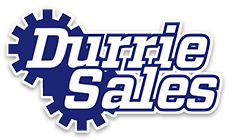If 2020 has taught manufacturers anything, it’s that flexibility is key to riding the wave of change. With that in mind, companies have had to explore new sales models to stay competitive and top-of-mind with their customers.
Traditionally, manufacturers have debated whether a team of direct sales reps or an outsourced sales model utilizing independent manufacturers’ sales representatives is best. There are pros and cons with each strategy.
The good news is that an increasing number of manufacturers are realizing that they don’t have to choose between the two; they can use a hybrid approach in a way that fits their unique needs and their market landscape.
In 2019, 67.9% of all companies studied by the Industrial Supply Association (ISA) used a combination of independent reps and direct field sales employees. It’s easy to see why: A hybrid approach is flexible, helps cover small or remote territories more efficiently, takes advantage of a wider breadth of experience, and allows for the building and maintenance of strong relationships.
Is a hybrid sales model right for your company? Maybe. But before you get started, there are a few logistics that need to be considered.
Three Areas to Consider When Pairing Outsourced Sales with Direct Reps
To build and implement an effective hybrid sales model, focus on building the right Human Resources (HR) processes, account management strategy, and division of roles and responsibilities.
Human Resources Management
You might think that using both outsourced sales and direct reps complicates HR matters, but your hybrid sales model can be successful if you follow these guidelines:
- Hire for a role, not for a task. Rather than outsourcing a set of tasks to an external sales rep agency, think in terms of a clearly defined role that needs to be fulfilled.
- When hiring an external sales rep agency, be as particular as you would for direct employees because they become the face of your company. The agency you hire will affect the way your company functions. Make sure they have experience and success working with companies like yours.
- Cut HR costs through outsourcing. Maintaining a direct sales team means maintaining an extensive set of skills and expensive benefits programs. Outsourcing shifts the training and benefits cost burden to the agency. You can mitigate these costs even further by opting for a commission payment on each successful sale instead paying the outsourcing sales agency a set monthly fee or a retainer.
Account Management
Your company likely has customers in several markets, different territories and sizes. It’s up to you how to organize and manage these accounts across your sales teams. Most manufacturers choose to divide their accounts between direct and outsourced sales representatives in several ways:
- By relationship. The better the relationship, the faster the sales grow. If a manufacturer can’t wait for a direct sales rep to build new relationships, the Independent Sales Rep that already has the connections may be better.
- By market segment. It’s not unusual for a manufacturer to target customers in different fields. For example, a manufacturer might serve medical, agriculture, aerospace, automotive and government customers. It may be advantageous to select a sales team with expertise in that specific segment. It’s also possible in some segments that a direct sales team is best, but others would be better served by independent sales rep.
- By geography. Enlisting the efforts of independent reps in territories where you don’t have a stronghold allows you to more easily break into new accounts and improve sales. Some independent rep agencies also have their own warehousing space in a territory that will offer logistical advantages while also giving you access to existing relationships the rep agency may have in the area.
- By size. For one company, outsourcing small to medium accounts will allow their direct sales team to focus on large, national accounts, which can free them up to coordinate marketing and sales initiatives. The independent reps you hire will ensure that small to medium accounts stay profitable. Another manufacturer may want the opposite: the direct sales team would focus on smaller accounts to build a stronger foundation while the independent reps cultivate large national accounts.
One point of caution: Regardless of how you assign the accounts make sure to keep your customers top of mind and avoid overlap between your direct team and independent reps.
Management of Roles and Responsibilities
Defining clear roles and responsibilities for direct and outsourced sales teams is critical but also challenging. To streamline this process, follow these guidelines:
- Onboarding responsibilities. Manufacturers need to take extra measures to unite independent sales reps within their company culture and communication channels to achieve optimum success.
- Use existing technology. For example, the Industrial Supply Association (ISA) and independent manufacturers reps have partnered with several CRM software providers to conveniently share sales data.
- Develop sales and business plans. Your direct and outsourced sales teams should work together to develop dedicated sales and business plans to target high-quality leads and turn them into paying customers. The ISA SalesWerks Business Planning Tool (available for download here) can help your team set goals and plan future sales initiatives.
Ultimately, a hybrid sales model can give you the best of both worlds, combining the value of direct sales expertise, training, and oversight with the flexibility, relationships, and geographic range of outsourced sales reps.
If you’re looking for a way to build a hybrid sales model within your own company to help improve sales, manage costs, and grow your pipeline, Durrie Sales can help you accomplish your goals.
Our experienced B2B IMRs will filter your leads, convert more quotes, and start important conversations with buyers while enabling you to eliminate extra costs and direct employment risks. Contact us today to learn more!


